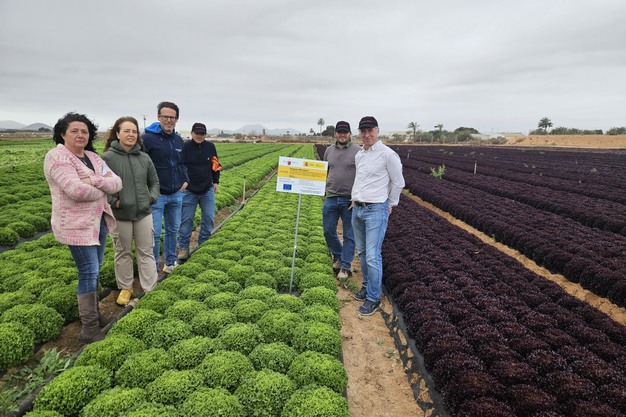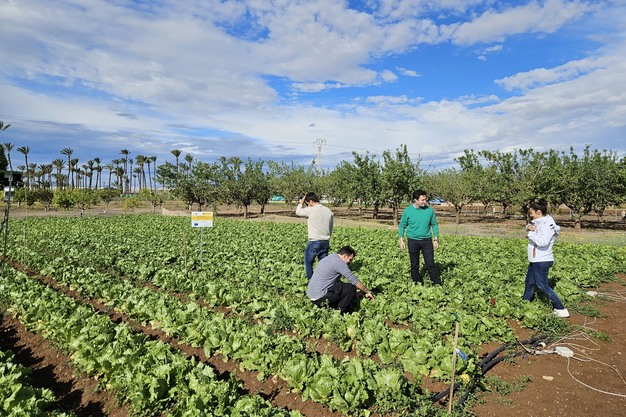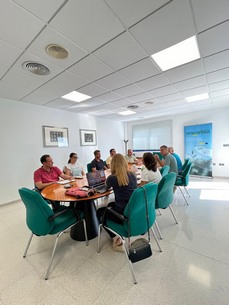"This is the Nuves operational group. Nuves is an acronym for sustainable plant nutrition in Spanish (Nutrición Vegetal Sostenible). We called it that because this operational group focuses on sustainable plant nutrition. We can't think of any other process that better suits the concept of sustainability. Nutrition must be sustained over time. It must provide the crops the nutrients they need, using the soil as a medium, without exhausting its resources or causing damage to the environment. Therefore, it's a question of finding a balance. Too many inputs can damage the environment and crops, causing financial losses. In contrast, if we don't use enough inputs, the crops will have nutritional deficiencies and soil fertility will decrease. These imbalances don't necessarily manifest themselves when they occur, they can appear years later," state Abelardo Hernández, technical director of Proexport and coordinator of the Nitrosfera project.

"At the moment, we are working on Nitrosfera, a project with which we plan to implement nitrogen fertilization strategies that complement the restrictions established for vulnerable areas through the use of special fertilizers, microorganisms, and the use of precision fertilization, among other techniques, increasing the efficiency of the system so we can comply with the regulations while maintaining soil fertility and obtaining competitive yields," he stated.
"At Nitrosfera we study soil-plant relationships taking into account that it is a dynamic system that varies over time and that it's necessary to continuously replenish the nutrients that plants absorb through the roots, especially nitrogen because of its low capacity to be retained. Nitrogen is an essential element for growth. The lack of nitrogen at any time of the cycle causes significant reductions in plant development. But we also have to consider that the soil is highly resistant to changes in its physical, chemical, and biological characteristics, which means that any intervention takes several years to produce results and makes it necessary to sustain this effort over time."

"The restrictions on fertilization, especially nitrogen fertilization, that have been set for the Campo de Cartagena region modify the rate of replenishment of key elements to maintain soil fertility, such as organic matter. This means we have to find new, sustainable balances to avoid the gradual reduction of their capacity to supply crops with adequate and balanced quantities of water and nutrients," Hernández added.
"In short, our goal with Nitrosfera is making use of the knowledge of the new products and techniques available to find this new balance in fertilization to provide the crops the nutrients and elements they need sustainably, improving the fertility of the agricultural soil and also the competitiveness of the productions."
Teamwork
 The Operational Groups are a group of agents with different profiles linked to the rural environment that come together to develop and implement an innovative project aimed at finding a solution to a shared problem or to test and implement an innovative idea related to some sector of the rural environment, in this case, agriculture.
The Operational Groups are a group of agents with different profiles linked to the rural environment that come together to develop and implement an innovative project aimed at finding a solution to a shared problem or to test and implement an innovative idea related to some sector of the rural environment, in this case, agriculture.
The Nuves operational group is made up of the agricultural producers Fruca Marketing, G's España, Agromediterránea Hortofrutícola, Intercrop Ibérica, Grupo Hortofrutícola Murciana de Vegetales, and Huerta Gama, all of which are based in the Region of Murcia. PROEXPORT, the Fruit and Vegetable Producers-Exporters Association of the Region of Murcia, coordinates the innovation projects it develops. The Polytechnic University of Cartagena-UPCT provides the knowledge and technical basis for these projects to achieve their objectives. The groups are financed with funds from the European Agricultural Fund for Rural Development (EAFRD) and the Government of the Autonomous Community of the Region of Murcia. However, the means are provided by the participating producers.
 For more information:
For more information:
Proexport
Ronda de Levante, 1, Entlo.
30008 Murcia (Spain)
Tel: +34 646 27 80 50
Email: [email protected]
www.proexport.es
